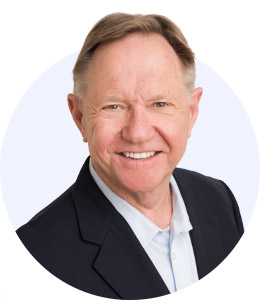On the Healthcare Plus podcast, I recently interviewed Leonard Friedman, PhD, FACHE, director of the Executive MHA program at the George Washington University, Washington, D.C. He and his colleague Wayne Psek, MD, PhD, had written an article in Healthcare Executive. The title, “Developing Leadership Competencies for an Uncertain Future,” caught my attention.
In healthcare, we have so many new leaders. We hear a lot about getting back to basics, but how do we do that when so many leaders weren’t here for the basics four years ago? And what worked four years ago might not work today anyway.
With all the change swirling in healthcare, we need to be ultra-engaged in how we’re developing the next generation of leaders. Dr. Friedman talked about creating an intentional future. The best way to predict the future is to create it. Click here to listen to the podcast, but here are a few truths and mindsets we need to instill as we develop the next generation of leaders:
1. Healthcare is a relationship business. Emotional and social intelligence matter.
Yes, we have sophisticated technology, computers, and equipment, but at its essence, healthcare is about the human element. Emotional intelligence and social intelligence will be the big drivers. Emotional intelligence is understanding your own emotional state (and how it affects other people) as well as emotions displayed by others in the workplace. Social intelligence is more action-based. What do I do? What activities do I engage in? Our activities are driven by what’s happening emotionally.
The main takeaway is this: Our emotional state can’t be separated from our social state. They are two sides of the same coin. Emotional intelligence helps you with self-awareness, and social intelligence helps you take the next steps to maximize it.
2. It’s crucial to break down silos and understand how what we do impacts others across the system.
We are so focused on optimizing our department that we may lose sight of the big picture. That can impact our ability to make needed changes quickly. Breaking down silos requires letting go, trusting one another, and sharing information to improve the system that benefits us all. As Stephen Covey said, change moves at the speed of trust. Sharing information is a sign of that trust. This was an important part in the book The Human Margin: Building the Foundations of Trust authored by Dr. Katherine A. Meese and myself.
3. We need to build emotional safety so people are more comfortable with innovation.
Fear of failure keeps us from innovating. I recommend operational trials, which are the equivalent of clinical trials. They give new leaders the psychological safety to try something new. Calling it a trial makes it okay to fail.
4. Change is hard because it evokes an emotional fight-or-flight response.
People feel threatened by change. They’ve worked hard to be competent at their job, and then someone asks them to do it differently. Leaders need to have empathy for individuals in the change process. With change can come the discomfort of moving backward. Things are not comfortable, and it takes time to master the change. Recognizing this goes a long way. It shows you care.
5. People are suffering from change fatigue: “Stop the world; I want to get off!”
We are trying to control large chaotic systems. It’s not easy for anyone. We need to acknowledge that everyone is tired and build some empathy into the change process. Give people an opportunity to voice their fears and concerns. We might not be able to do anything about it, but people want to be heard and know that you understand.
6. Too much change too fast overwhelms people.
We often do too many things at once. People’s desire to be better can create change exhaustion. It’s so much better to break change into small components than to try to tackle whole systems change at once. (In baseball, we call this “small ball”—we focus on getting a runner on base and advancing them methodically rather than aiming for grand slam home runs.) Aiming for small wins keeps morale up. Pick one small thing to focus on. Handwashing is a good example of a small thing that has a big impact: It’s the number-one thing we can do to reduce hospital-acquired infections. Now we’re at the point that handwashing is second nature. Once something is second nature, we can move on to the next thing.
7. Healthcare people tend to be full-plate people. We need to watch this.
Leaders will never complete their to-do list. “Less is more” is hard for us. We need to help individuals make the psychological shift that doing fewer items well works.
8. Open-mindedness is a big piece of emotional and social intelligence.
I love this quote from Herbert Spencer: “The sure way to keep ourselves in darkness is to have contempt prior to investigation.” We need to encourage the next generation of leaders to be continuous learners who are open-minded and always willing to try something new.
9. There is a lot of value in self-awareness and getting out of our heads.
We need to take down the clock speed, put down our phones, and be more mindful of what’s happening all around us. This allows us to absorb ideas from other people.
At Healthcare Plus Solutions Group we see developing leaders as a powerful way to change healthcare for the better. The legacy we leave is the people we teach. We tend to get busy and not mentor and teach new leaders the way we should. This is a loss to them and to us. Yes, developing leaders with the right skills, values, and mindset—and doing it in a personalized way so it’s most impactful–builds our bench and makes our organizations stronger. But also, in the end we see that it was the part of our work that fulfilled us the most.







